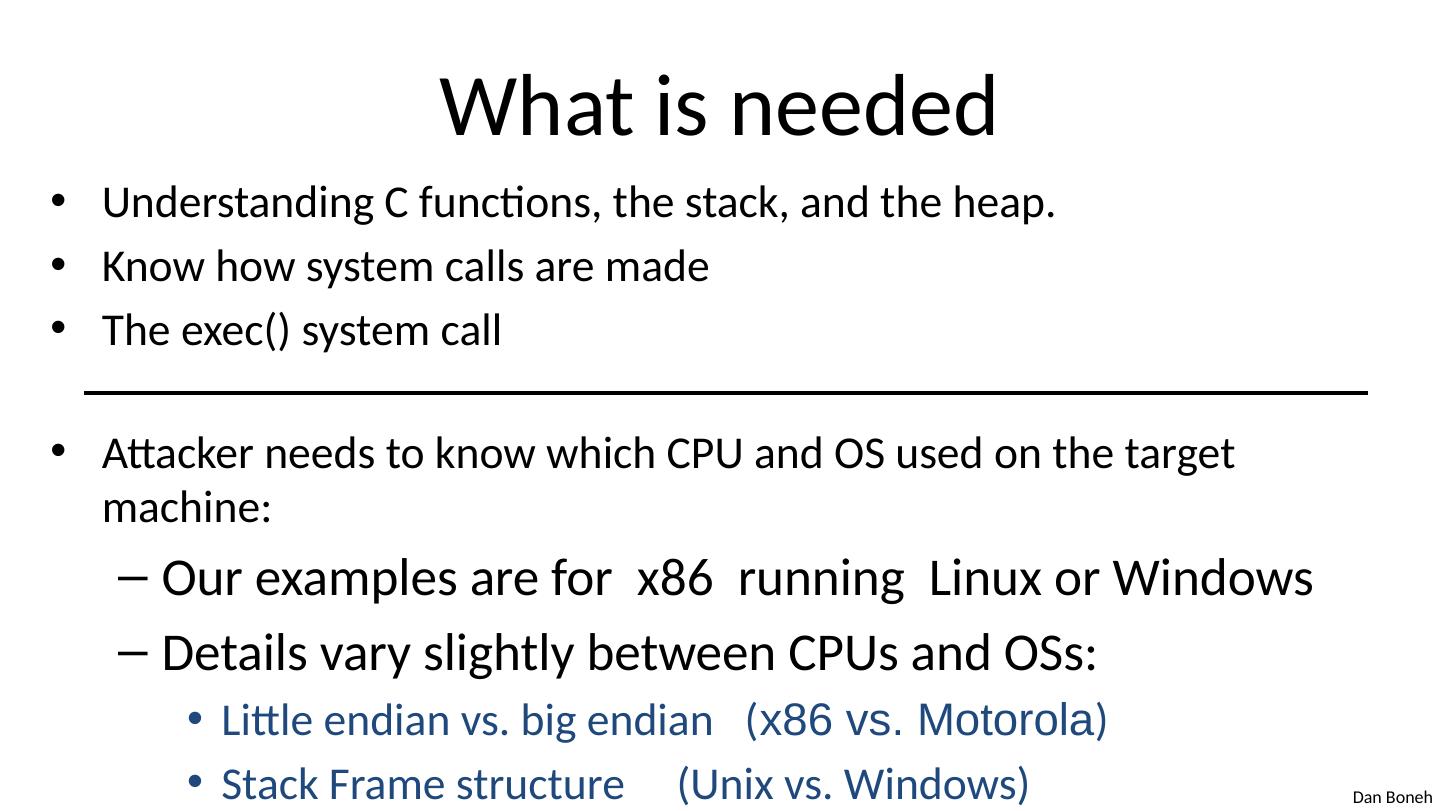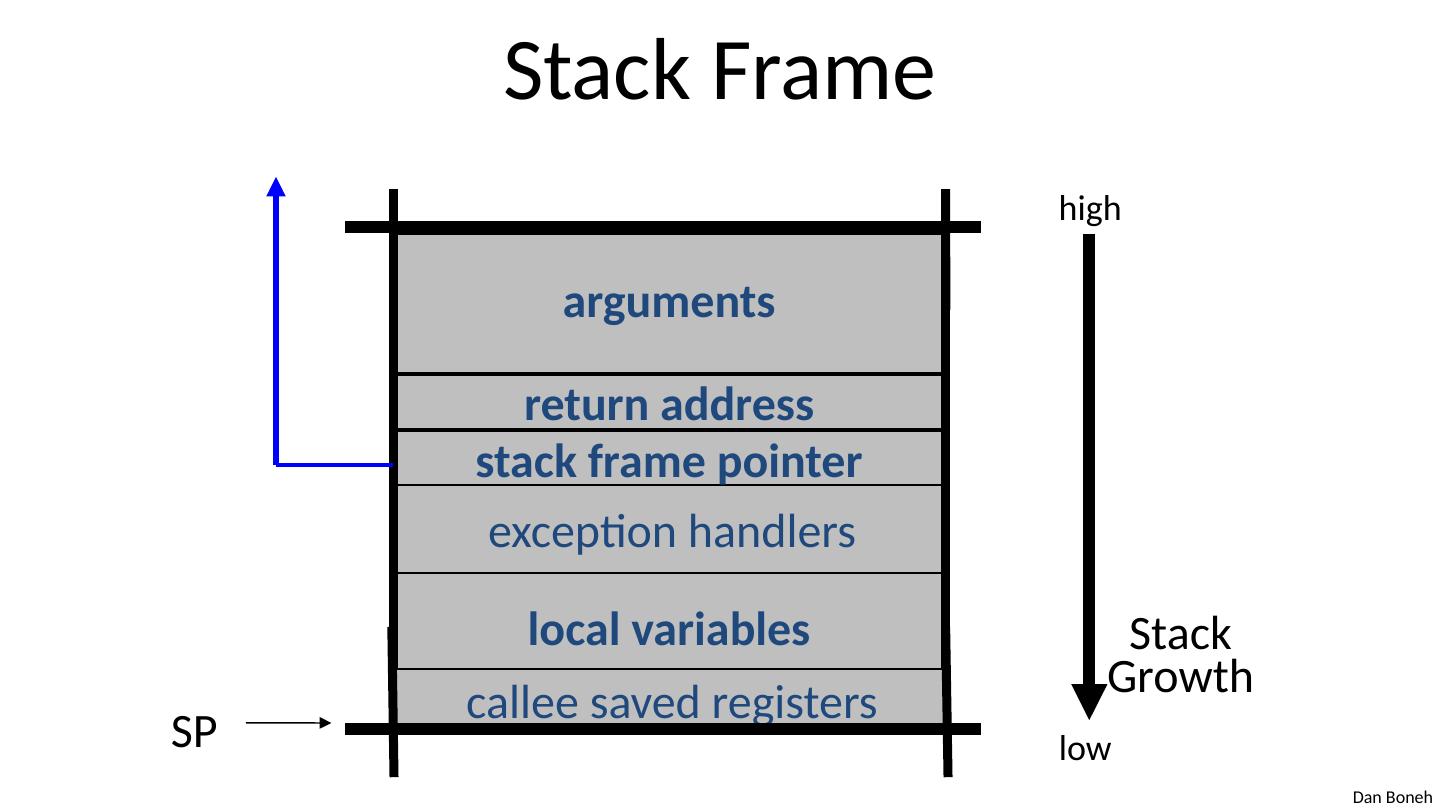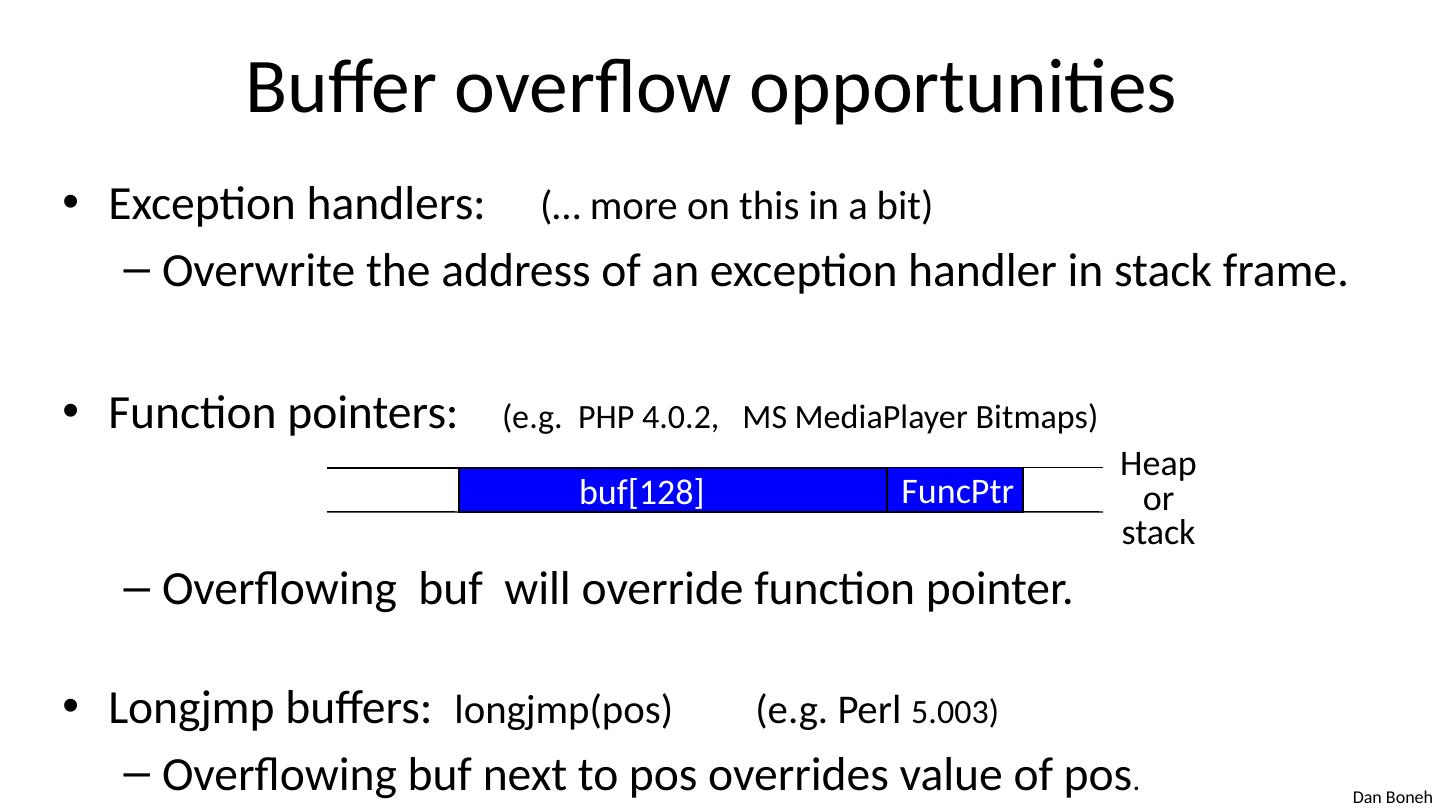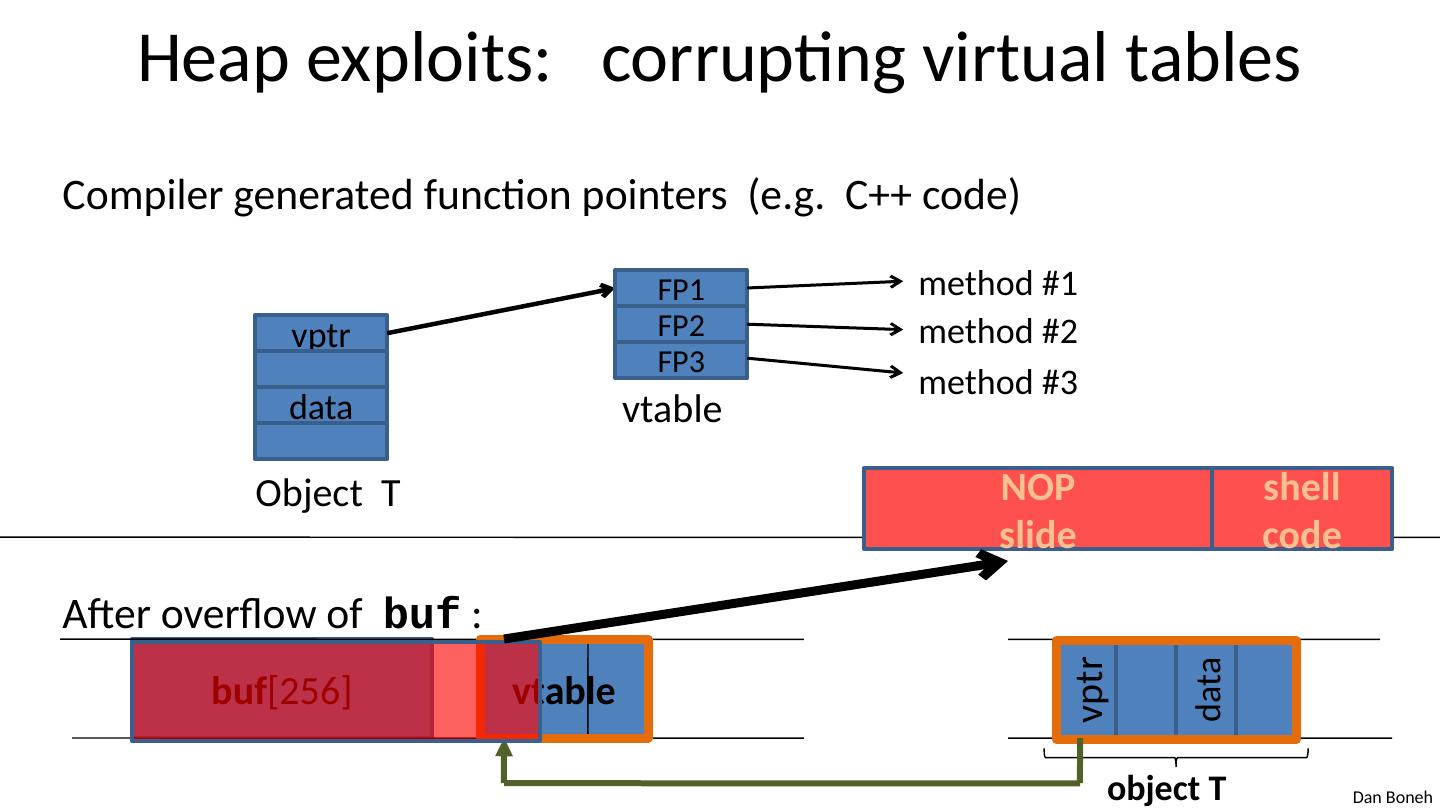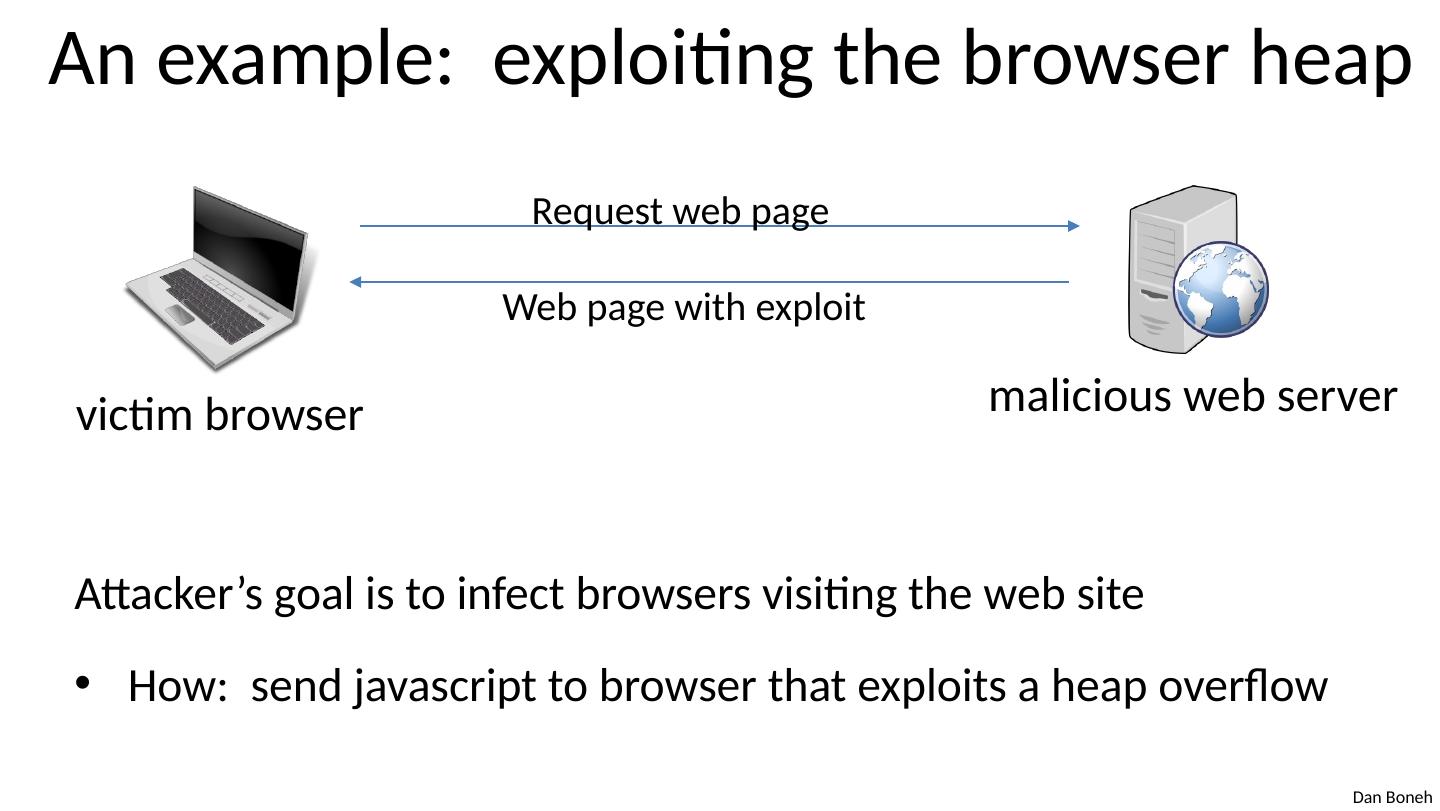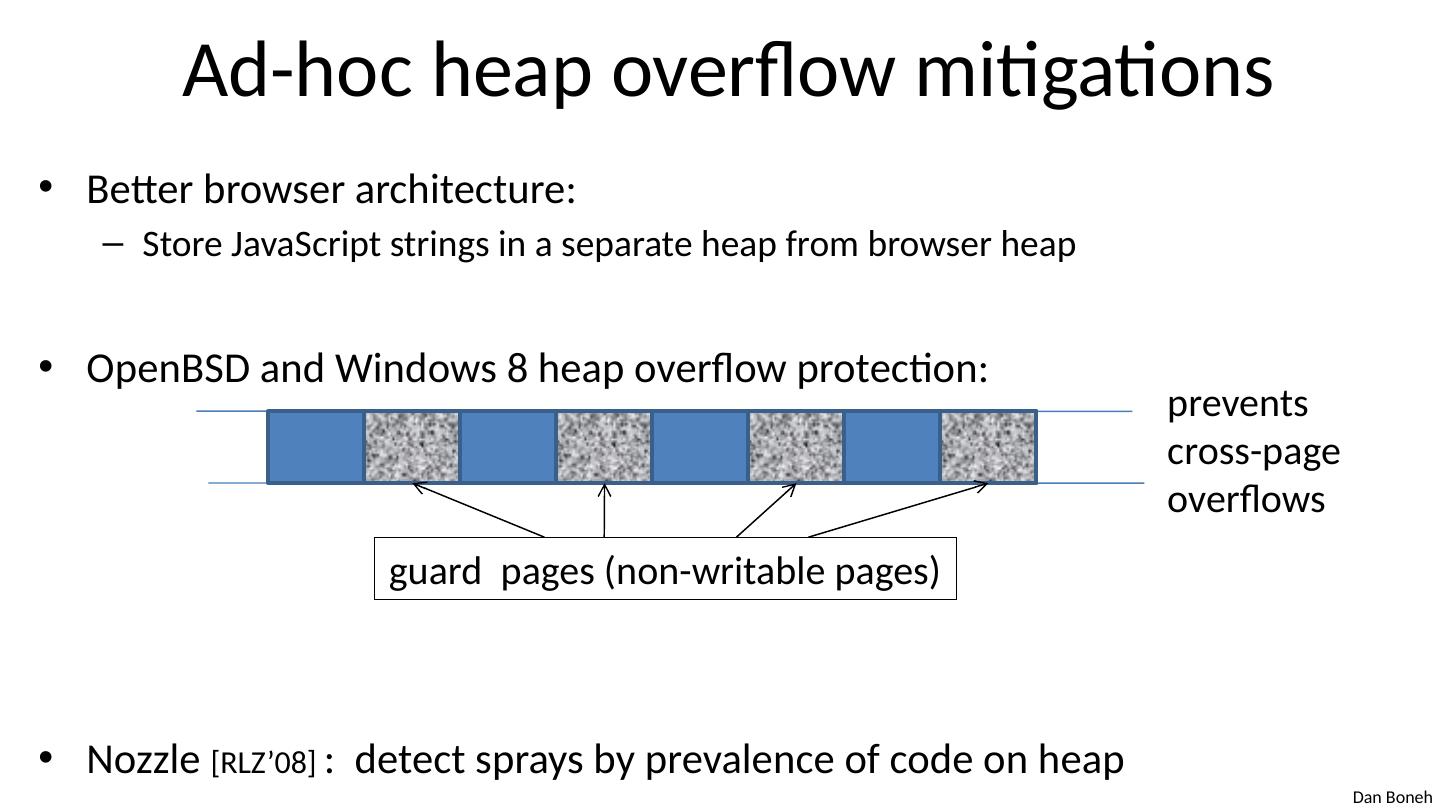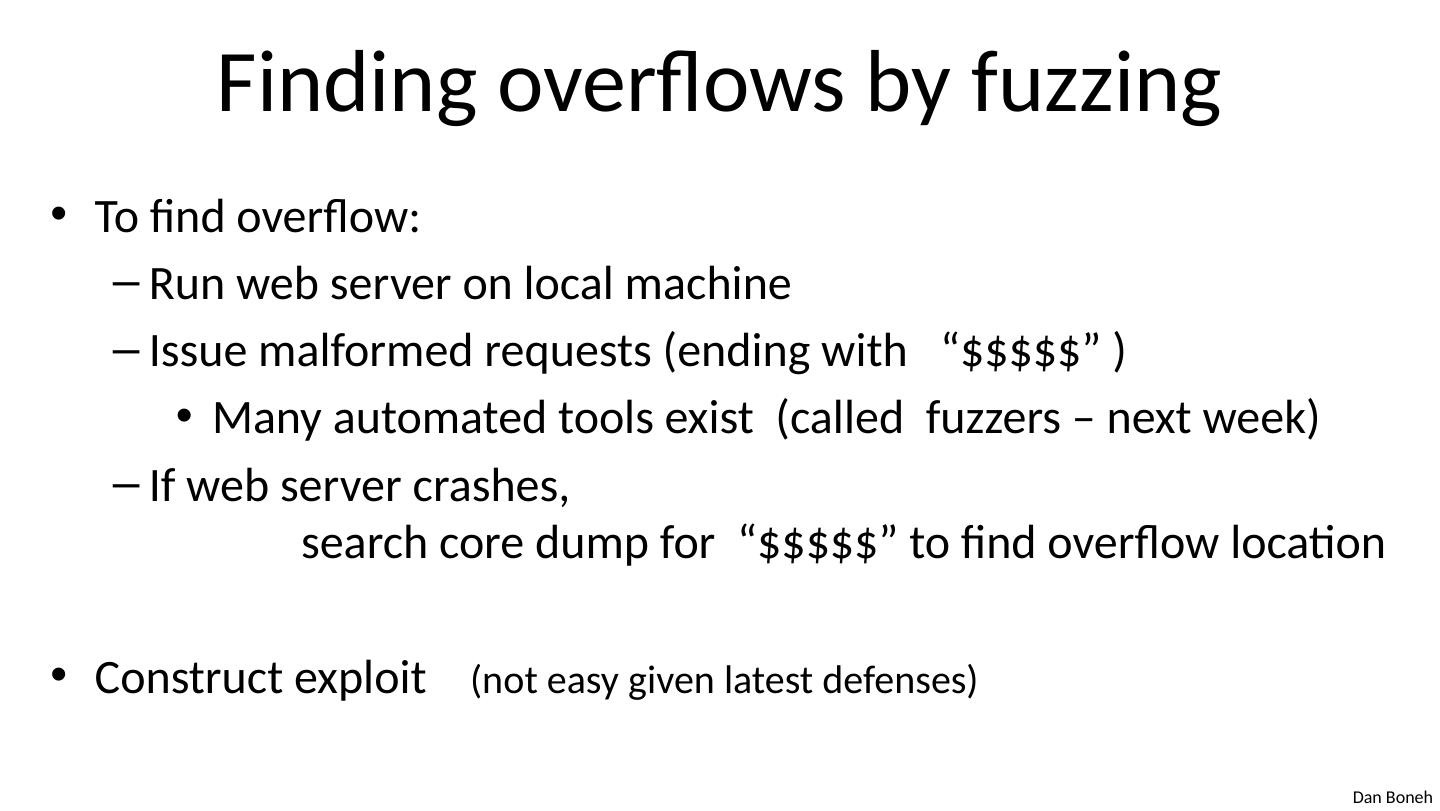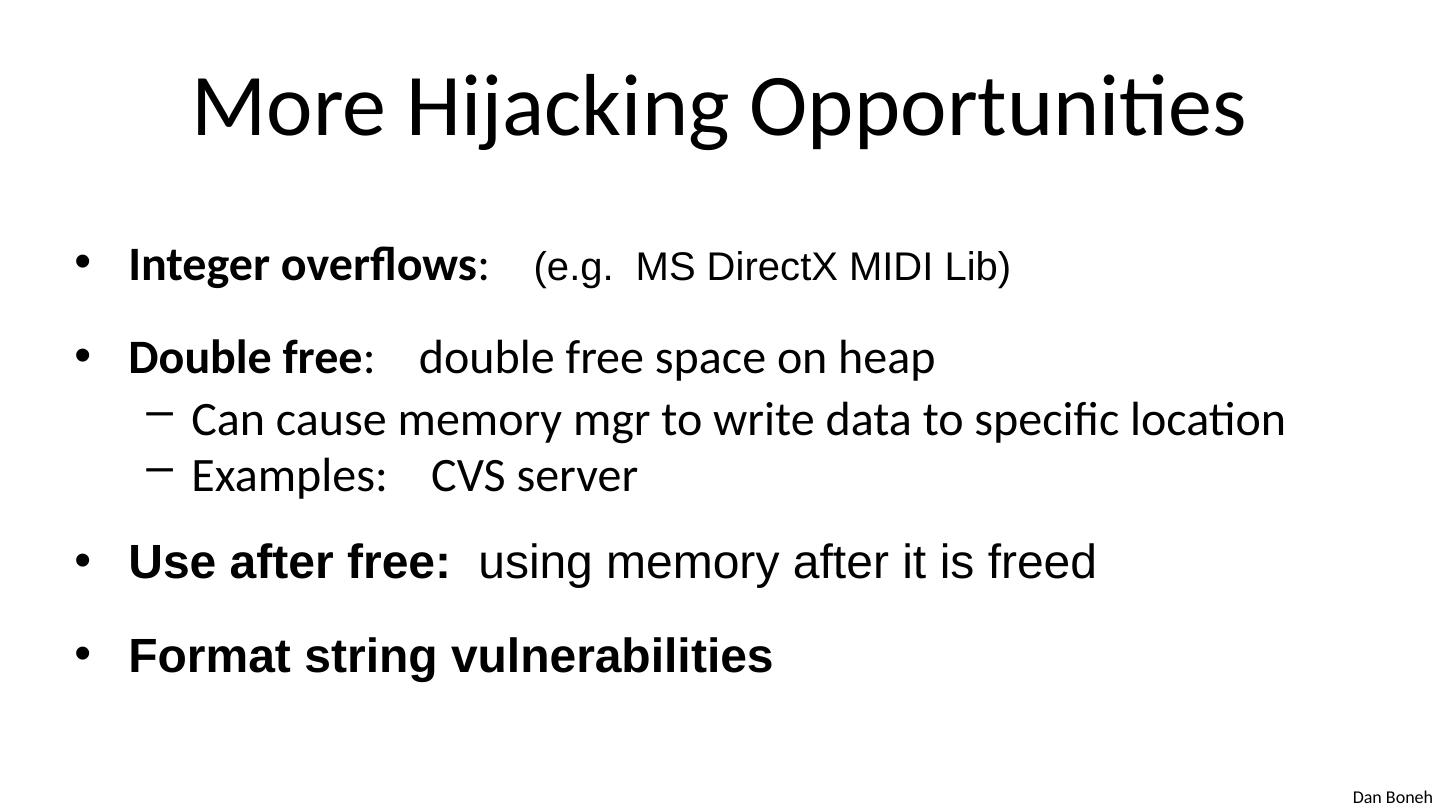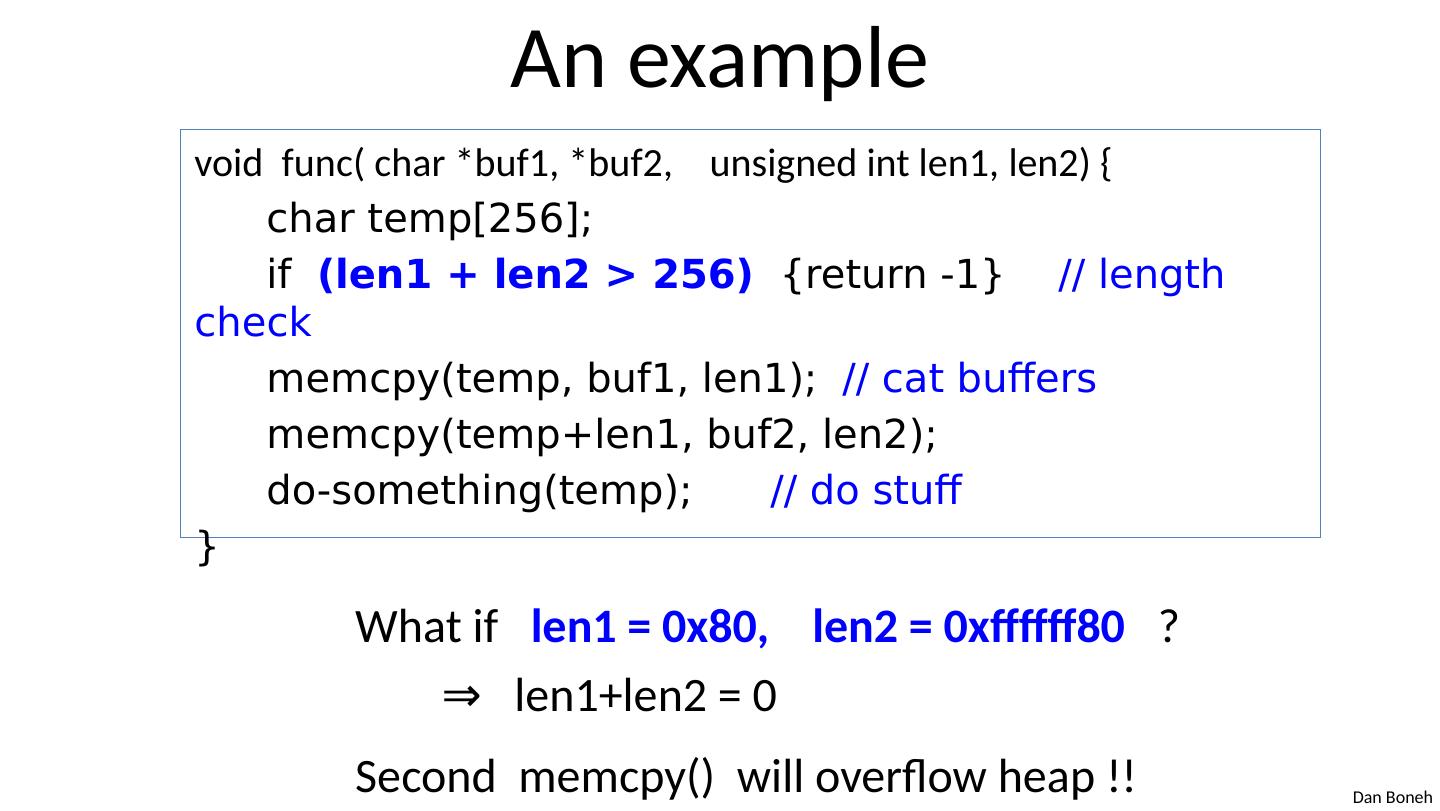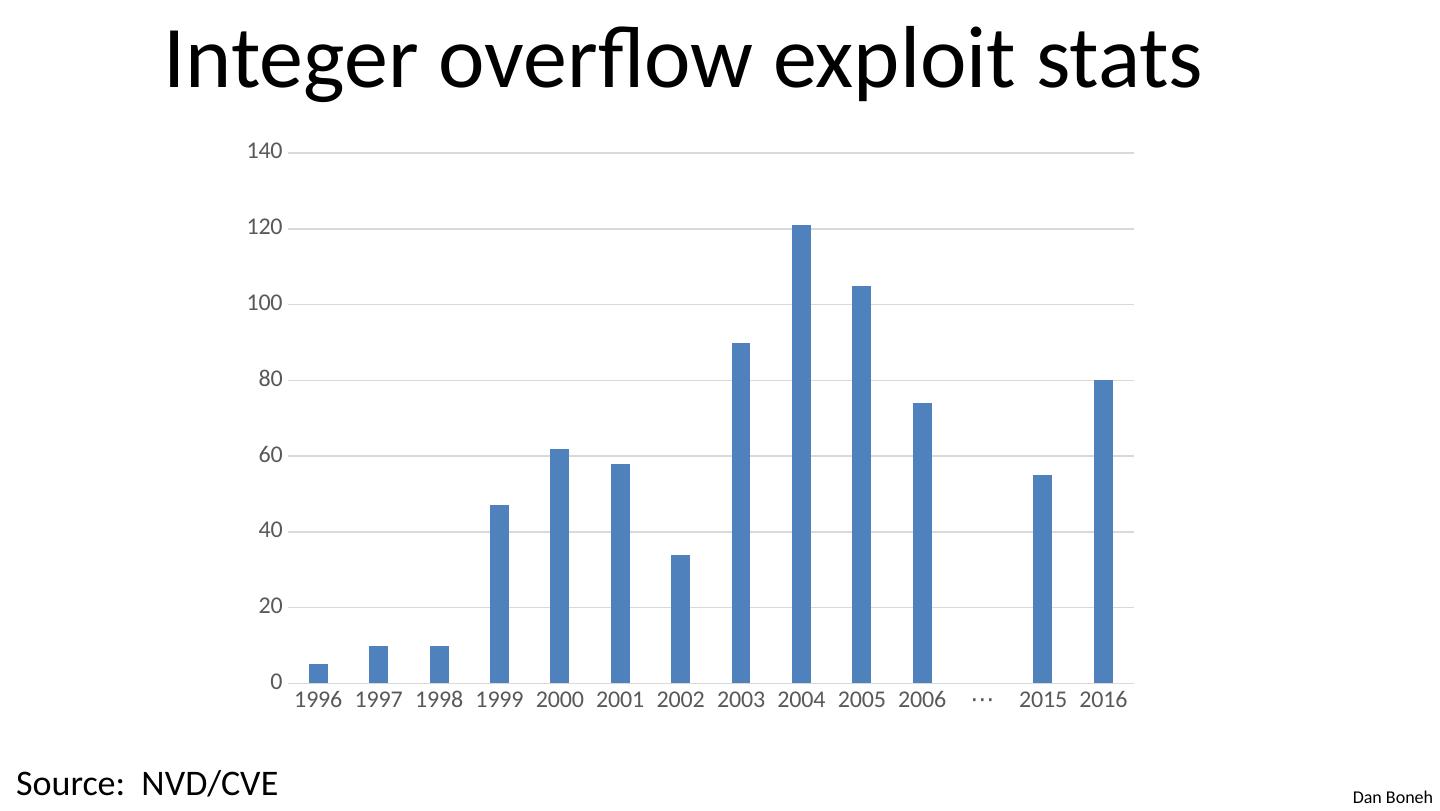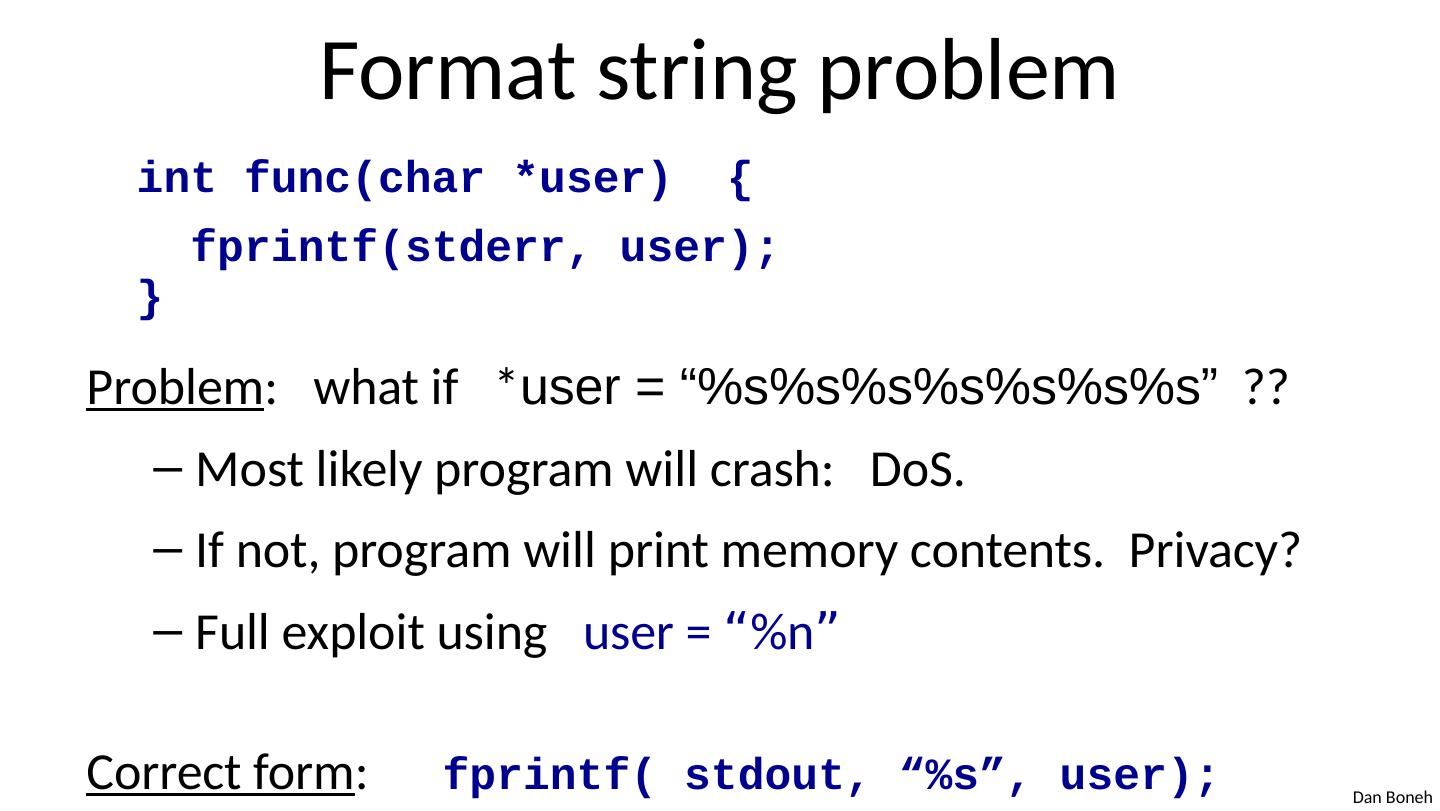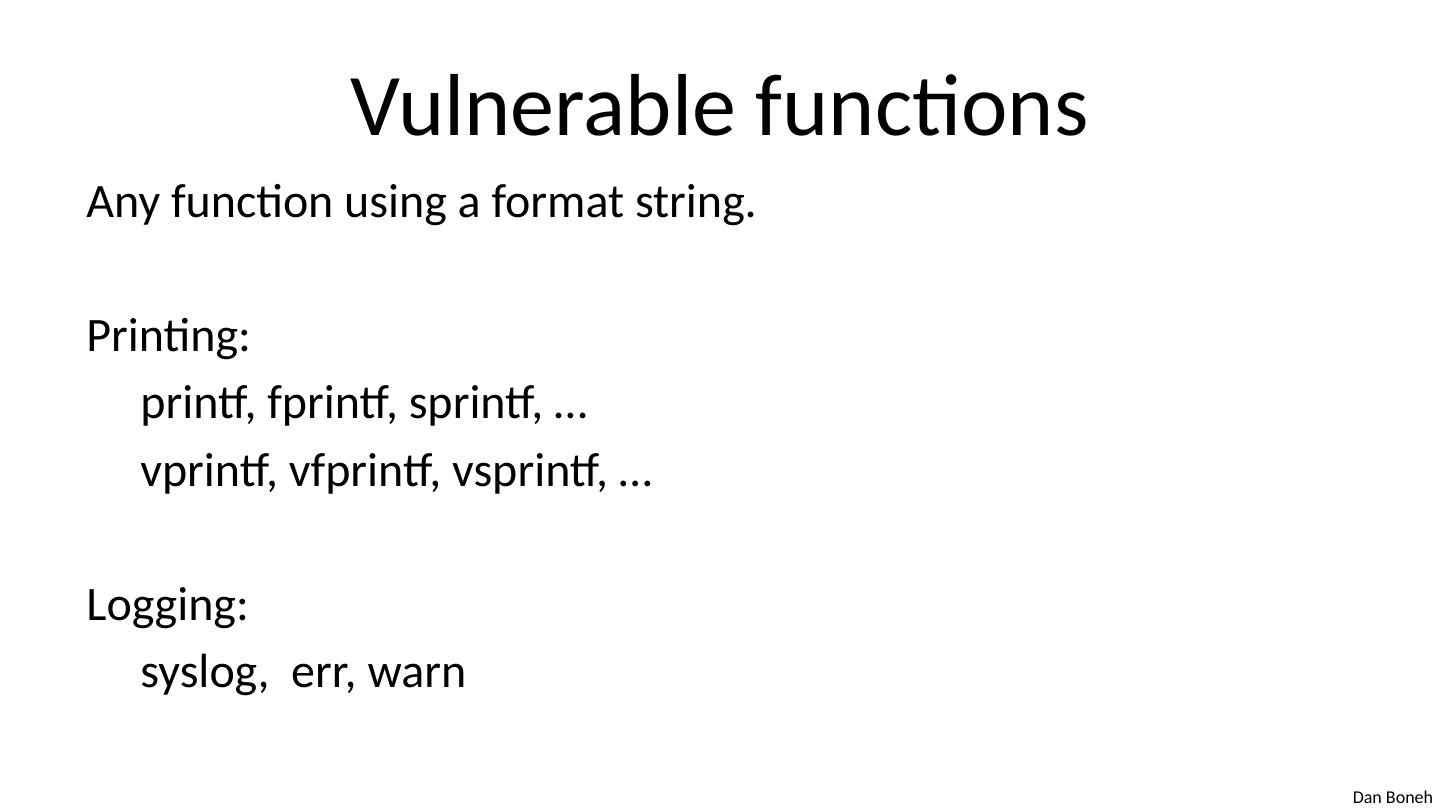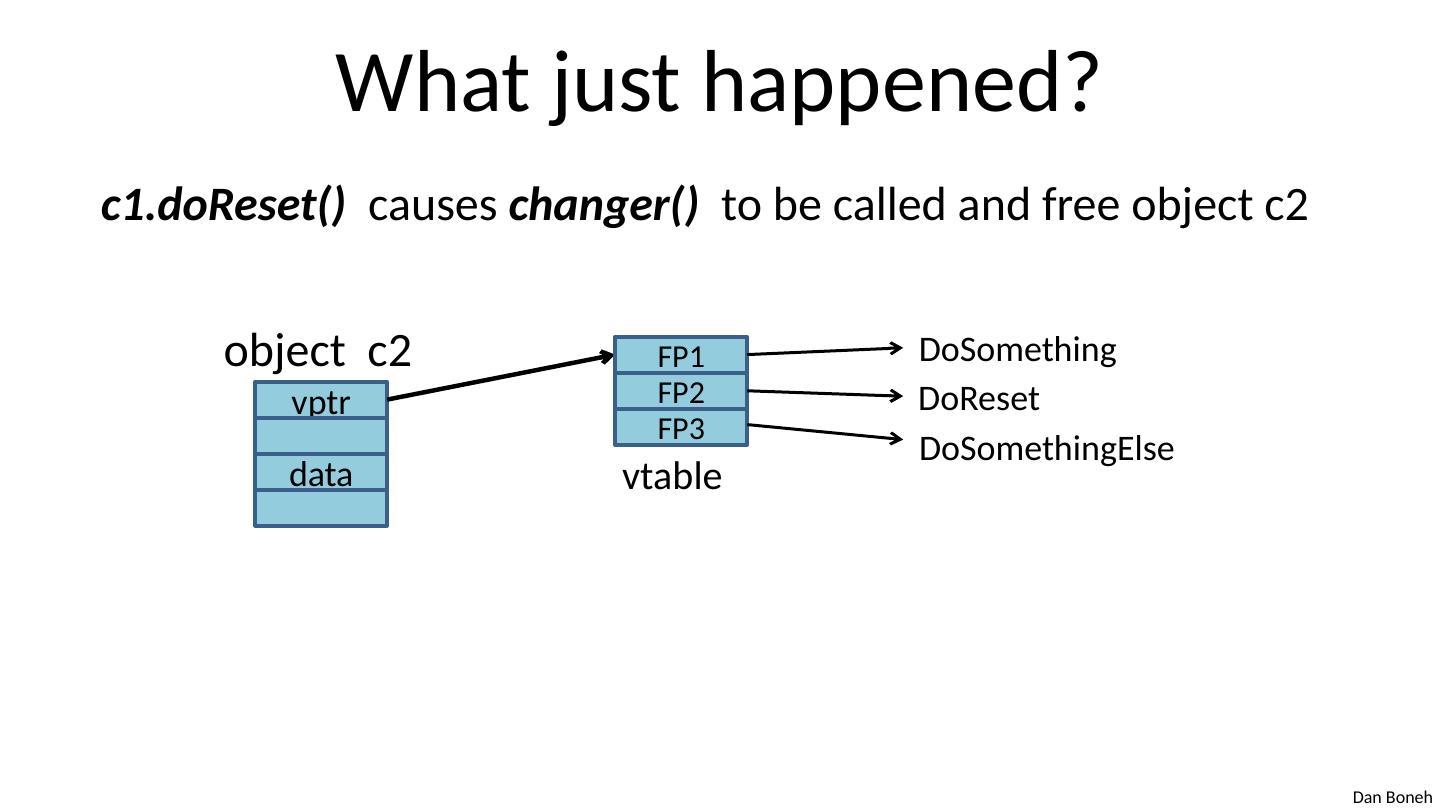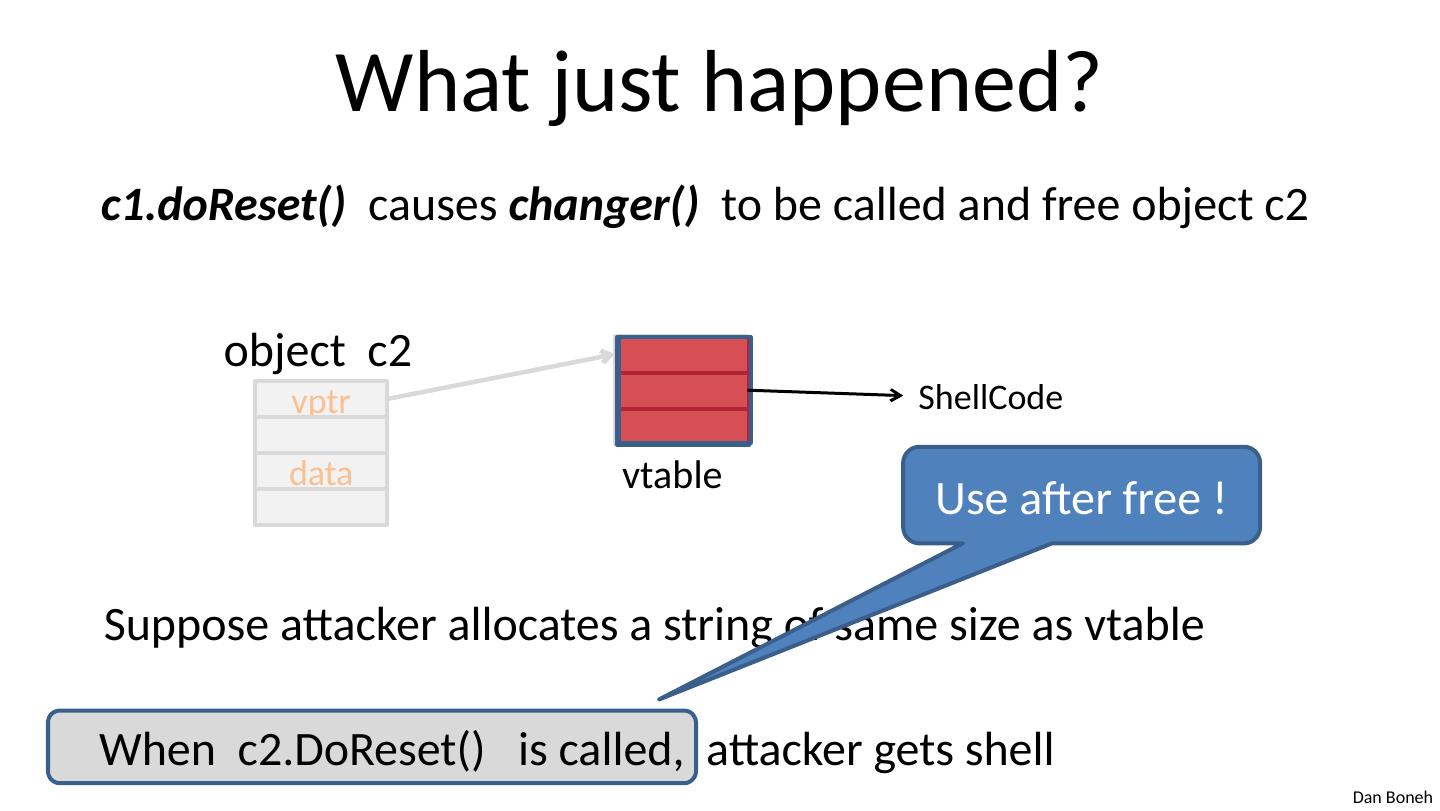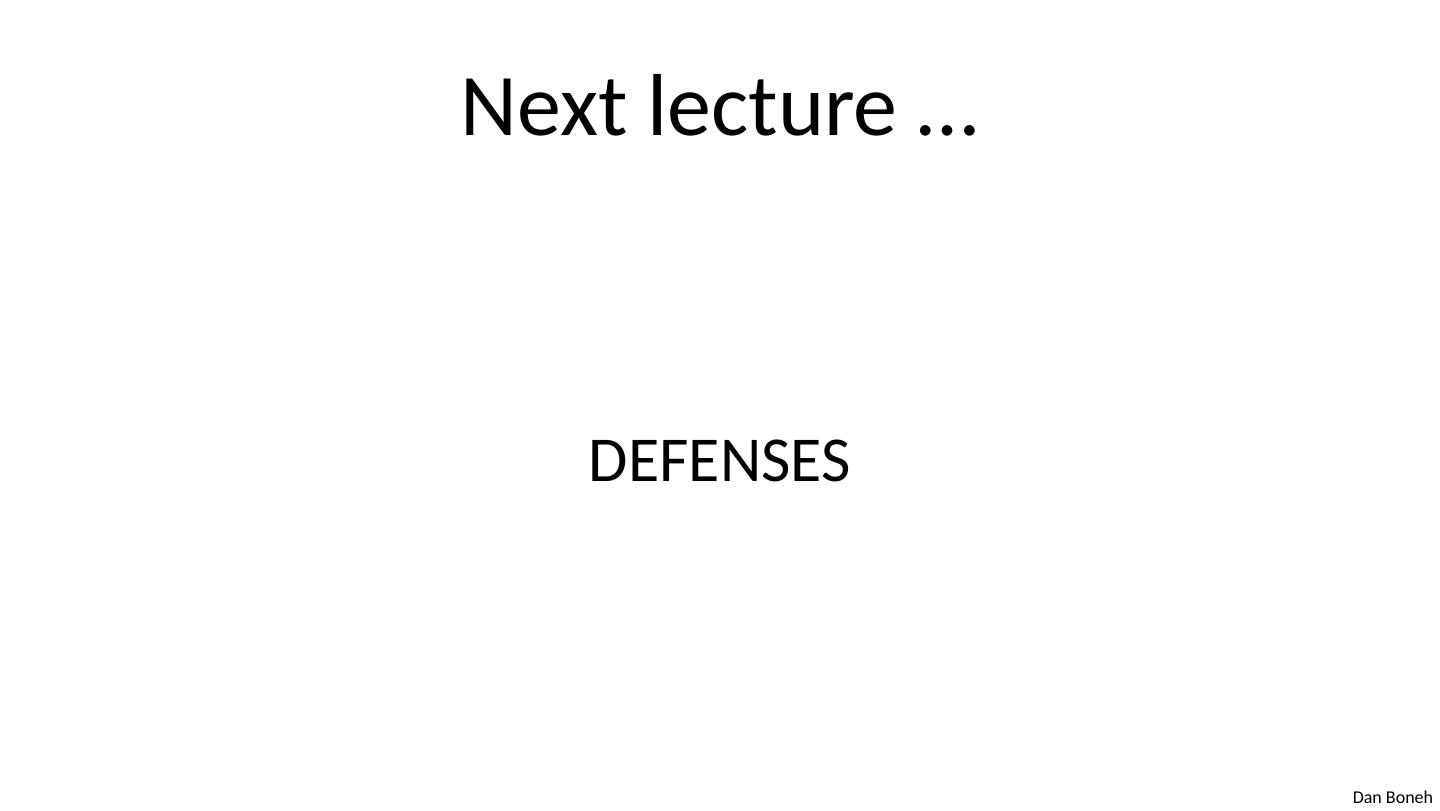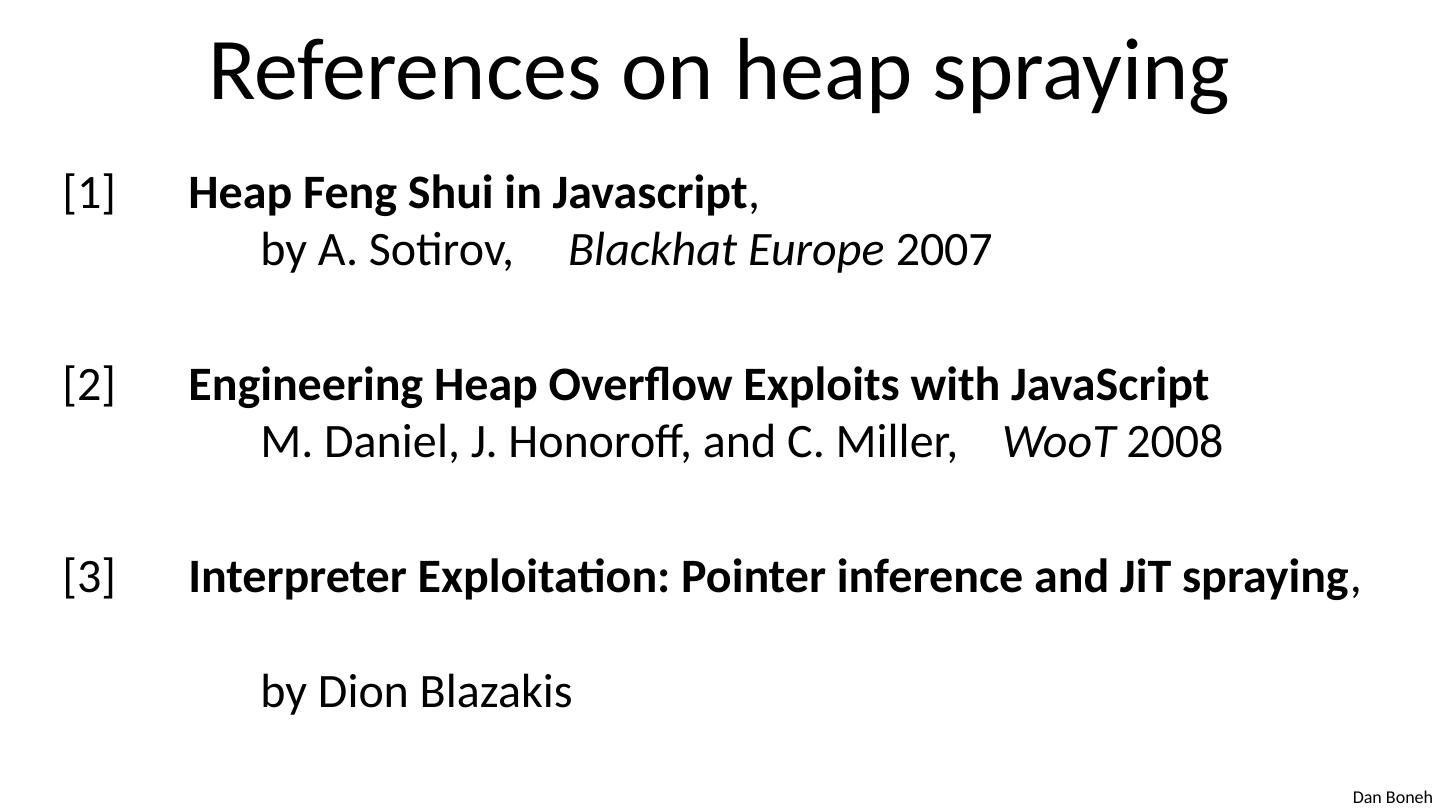- 快召唤伙伴们来围观吧
- 微博 QQ QQ空间 贴吧
- 文档嵌入链接
- 复制
- 微信扫一扫分享
- 已成功复制到剪贴板
02computer and network security---Control Hijacking
展开查看详情
1 .Control Hijacking Basic Control Hijacking Attacks
2 .Control hijacking attacks Attacker’s goal : Take over target machine (e.g. web server) Execute arbitrary code on target by hijacking application control flow Examples: Buffer overflow and integer overflow attacks Format string vulnerabilities Use after free
3 .First example: buffer overflows Extremely common bug in C/C++ programs. First major exploit: 1988 Internet Worm. Fingerd . whenever possible avoid C/C++ … but often cannot avoid C/C++ Need to understand attacks and defenses Source: web.nvd.nist.gov
4 .What is needed Understanding C functions, the stack, and the heap. Know how system calls are made The exec() system call Attacker needs to know which CPU and OS used on the target machine: Our examples are for x86 running Linux or Windows Details vary slightly between CPUs and OSs: Little endian vs. big endian ( x86 vs. Motorola ) Stack Frame structure (Unix vs. Windows)
5 .Linux process memory layout unused 0x08048000 run time heap shared libraries user stack 0x40000000 0xC0000000 %esp brk Loaded from exec 0
6 .exception handlers Stack Frame arguments return address stack frame pointer local variables SP Stack Growth high low callee saved registers
7 .What are buffer overflows? void func (char * str ) { char buf [128]; strcpy ( buf , str ); do-something( buf ); } Suppose a web server contains a function: When func () is called stack looks like: argument: str return address stack frame pointer char buf [128] SP
8 .What are buffer overflows? void func (char * str ) { char buf [128]; strcpy ( buf , str ); do-something( buf ); } What if * str is 136 bytes long? After strcpy : argument: str return address stack frame pointer char buf [128] SP * str Poisoned return address! Problem: no bounds checking in strcpy ()
9 .char buf [128] return address Basic stack exploit Suppose * str is such that after strcpy stack looks like: Program P: exec(“/bin/ sh ”) When func () exits, the user gets shell ! Note: attack code P runs in stack . (exact shell code by Aleph One) Program P low high
10 .The NOP slide Problem: how does attacker determine ret-address? Solution: NOP slide Guess approximate stack state when func () is called Insert many NOPs before program P: nop , xor eax,eax , inc ax char buf [128] return address NOP Slide Program P low high
11 .Details and examples Some complications: Program P should not contain the ‘
12 .Many unsafe libc functions strcpy (char * dest , const char * src ) strcat (char * dest , const char * src ) gets (char *s) scanf ( const char *format, … ) and many more. “Safe” libc versions strncpy (), strncat () are misleading e.g. strncpy () may leave string unterminated . Windows C run time (CRT): strcpy_s (* dest , DestSize , * src ) : ensures proper termination
13 .Buffer overflow opportunities Exception handlers: ( … more on this in a bit) Overwrite the address of an exception handler in stack frame. Function pointers: (e.g. PHP 4.0.2, MS MediaPlayer Bitmaps) Overflowing buf will override function pointer. Longjmp buffers: longjmp (pos) (e.g. Perl 5.003) Overflowing buf next to pos overrides value of pos . Heap or stack buf [128] FuncPtr
14 .Heap exploits: corrupting virtual tables Compiler generated function pointers (e.g. C++ code) After overflow of buf : vptr data Object T FP1 FP2 FP3 vtable method #1 method #2 method #3 vptr buf [256] data object T vtable NOP slide shell code
15 .An example: exploiting the browser heap Attacker’s goal is to infect browsers visiting the web site How: send javascript to browser that exploits a heap overflow malicious web server victim browser Request web page Web page with exploit
16 . A reliable exploit? <SCRIPT language="text/ javascript "> shellcode = unescape ("%u4343%u4343%..."); // allocate in heap overflow-string = unescape (“%u2332%u4276%...”); cause-overflow(overflow-string ); // overflow buf [ ] </SCRIPT> Problem: attacker does not know where browser places shellcode on the heap ptr buf [256] data shellcode vtable ???
17 .Heap Spraying [ SkyLined 2004] Idea: 1. use Javascript to spray heap with shellcode (and NOP slides) 2. then point vtable ptr anywhere in spray area heap vtable NOP slide shellcode heap spray area
18 .Javascript heap spraying var nop = unescape (“%u9090%u9090”) while ( nop.length < 0x100000) nop += nop ; var shellcode = unescape ("%u4343%u4343%..."); var x = new Array () for ( i =0; i <1000; i ++) { x[ i ] = nop + shellcode ; } Pointing function- ptr almost anywhere in heap will cause shellcode to execute.
19 . Ad-hoc heap overflow mitigations Better browser architecture: Store JavaScript strings in a separate heap from browser heap OpenBSD and Windows 8 heap overflow protection: Nozzle [RLZ’08] : detect sprays by prevalence of code on heap guard pages (non-writable pages) prevents cross-page overflows
20 .Finding overflows by fuzzing To find overflow: Run web server on local machine Issue malformed requests (ending with “$$$$$” ) Many automated tools exist (called fuzzers – next week) If web server crashes, search core dump for “$$$$$” to find overflow location Construct exploit (not easy given latest defenses)
21 .Control Hijacking More Control Hijacking Attacks
22 .More Hijacking Opportunities Integer overflows : (e.g. MS DirectX MIDI Lib) Double free : double free space on heap Can cause memory mgr to write data to specific location Examples: CVS server Use after free: using memory after it is freed Format string vulnerabilities
23 .Integer Overflows (see Phrack 60) Problem: what happens when int exceeds max value? int m; (32 bits) short s; (16 bits) char c; (8 bits) c = 0x80 + 0x80 = 128 + 128 ⇒ c = 0 s = 0xff80 + 0x80 ⇒ s = 0 m = 0xffffff80 + 0x80 ⇒ m = 0 Can this be exploited?
24 .An example void func ( char *buf1, *buf2, unsigned int len1, len2) { char temp[256]; if (len1 + len2 > 256) {return -1} // length check memcpy (temp, buf1, len1); // cat buffers memcpy (temp+len1, buf2, len2); do-something(temp); // do stuff } What if len1 = 0x80, len2 = 0xffffff80 ? ⇒ len1+len2 = 0 Second memcpy () will overflow heap !!
25 .Source: NVD/CVE Integer overflow exploit stats
26 .Format string bugs
27 .Format string problem int func (char *user) { fprintf ( stderr , user); } Problem : what if * user = “% s%s%s%s%s%s%s ” ?? Most likely program will crash: DoS . If not, program will print memory contents. Privacy? Full exploit using user = “ %n ” Correct form : fprintf ( stdout , “%s”, user);
28 .Vulnerable functions Any function using a format string. Printing: printf, fprintf, sprintf, … vprintf, vfprintf, vsprintf, … Logging: syslog, err, warn
29 .Exploit Dumping arbitrary memory: Walk up stack until desired pointer is found. printf ( “%08x.%08x.%08x.%08x|%s|”) Writing to arbitrary memory: printf ( “hello %n”, &temp) -- writes ‘6’ into temp. printf ( “%08x.%08x.%08x.%08x.%n”)






